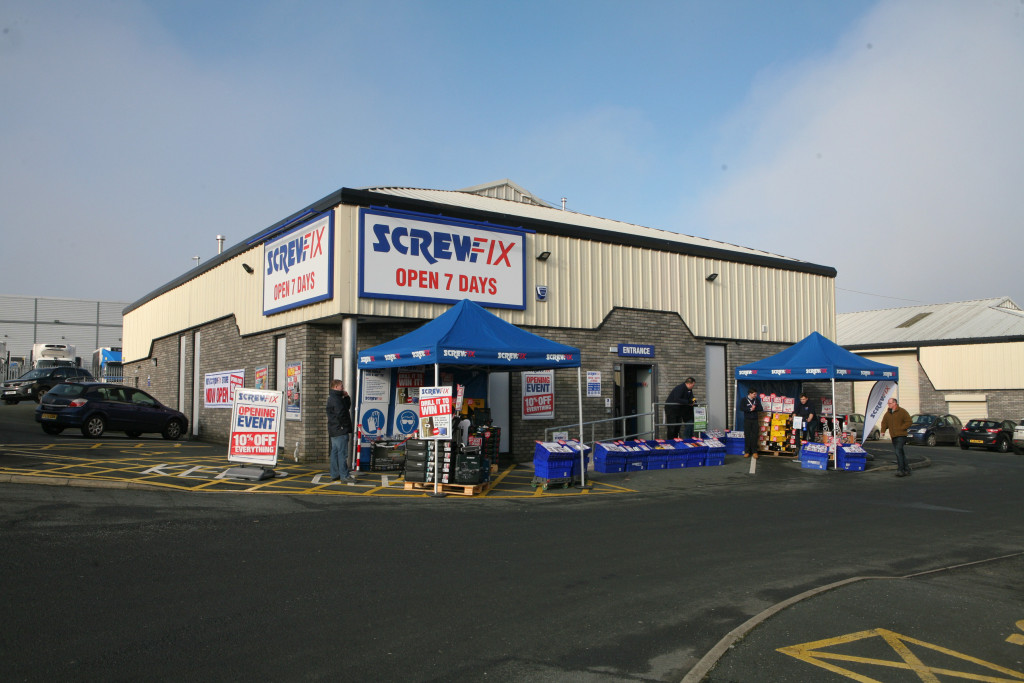On yet another bleak day for the retail sector that sees Moss Bros (MOSB) post its second profit warning in three months and ailing flooring specialist Carpetright (CPR) agree an emergency loan with a shareholder, shares in Europe’s second biggest home improvement business Kingfisher (KGF) slump 7.9% to 311p.
Investors take fright as the B&Q-to-Bricot Depot brands owner reports a sharp 5.1% fourth quarter like-for-like sales drop at DIY chain B&Q and warns of a ‘more uncertain’ outlook for the UK market.
Kingfisher’s results for the year to 31 January 2018 reveal underlying pre-tax profit, stripping out business transformation costs of £114m, up a better-than-expected 1.3% to £797m and there’s a 4% increase in the total dividend to 10.8p to keep income hunters happy.
BAD NEWS FOR BIG TICKET
However, group like-for-like sales waned 0.7% at constant currency. And while Kingfisher enjoyed continued good growth at Screwfix and in Poland, sales were dampened by business disruption - reflecting issues surrounding product availability and clearance - weaker and volatile sales in France and softer fourth quarter sales in the UK, where big ticket spending is under severe pressure.
During Q4, Kingfisher’s businesses experienced ‘softer sales patterns’, with B&Q’s like-for-like sales slumping 5.1%, reflecting weaker demand for big ticket purchases such as kitchens.
Like-for-like sales growth at plumbers’ and electricians’ favourite Screwfix slowed from 10.2% to 7.1% quarter on quarter. Gross margins are also coming under pressure.
Across the channel, Kingfisher’s Castorama and Brico Depot chains continue to struggle, like-for-like sales down 2.4% and 4.8% respectively last year.
MIXED PICTURE
Forward-looking investors are discounting a more difficult year ahead.
In its outlook statement, Kingfisher warns ‘the outlook by country as we enter full year 2018/19 is a mixed picture. In the UK it is more uncertain, and in Q4 both B&Q and Screwfix experienced softer sales. In France, we are encouraged by the market backdrop although it is volatile, whilst in Poland the market remains supportive.’
Chief executive Veronique Laury puts a positive gloss on things, stating: ‘We have made good progress in this second year of our ambitious five-year transformation after a significant step up in the level of activity.
‘For the second year in a row, all our key strategic milestones have been met and I am really pleased to say that we are starting to see tangible delivery of our plan. The changes are now visible across our stores and online.’
Yet as Russ Mould, investment director at AJ Bell, explains: ‘B&Q may be one of Britain’s best known DIY chains but brand strength doesn’t always guarantee financial success. B&Q’s fourth quarter like-for-like sales fell by 5.1%, as revealed in parent company Kingfisher’s results.
‘Equally embarrassing for Kingfisher is its drastic decline in cash generation. Operating cash flow fell by 45% to £557m in the past financial year. Once you knock off the capital expenditure and tax, free cash flow went from £459m a year ago to a miserable £6m this time round.
‘Remember that free cash flow should really fund the dividend, so Kingfisher looks to be in a tricky situation going forward when you consider the dividend bill is normally about £230m a year.’
Mould says the sharp reduction in cash was principally down to changes in working capital as Kingfisher increased stock levels.
He says Kingfisher has a plan to reduce stock in the new financial year, ‘but clearly this is going to be an area of concern to investors'.



